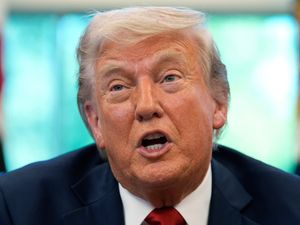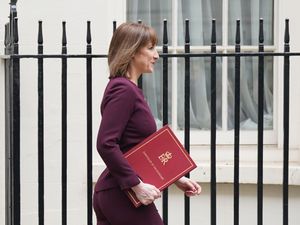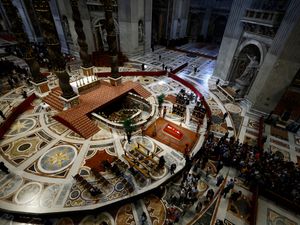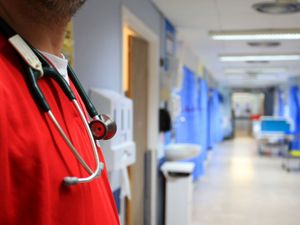US envoy suggests Ukraine can be partitioned ‘like Berlin post-Second World War’
General Keith Kellogg appeared to suggest the country could be split into zones of control with British, French and Russian troops.
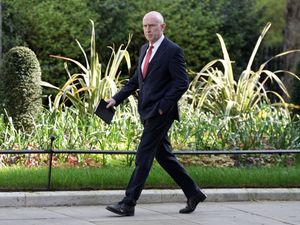
Ukraine could be partitioned like Berlin after the Second World War, Donald Trump’s envoy to Kyiv has suggested as Russia continues to hold out on accepting a truce.
General Keith Kellogg appeared to suggest the country could be split into zones of control, with British and French troops as part of a “reassurance force” in the west and Moscow’s forces in the east.
Between them would be Ukrainian forces and a demilitarised zone but the US would not provide any ground forces, he claimed.
“You could almost make it look like what happened with Berlin after World War Two, when you had a Russian zone, a French zone and a British zone,” the White House official said in an interview with the Times newspaper.
The remarks may cause consternation in Kyiv, which unlike Nazi Germany has a functioning government.
Russia has already rejected an American-backed proposal for a 30-day unconditional ceasefire and appears to be dragging its feet on a more limited truce in the Black Sea agreed last month.
It comes as Ukraine’s allies pledged a record 21 billion euros (£18.2 billion) of military aid for the country, with the UK Defence Secretary warning that 2025 was “the critical year” for the war.
The support announced on Friday includes a £450 million package from Britain and Norway to fund radar systems, anti-tank mines, vehicle repairs and hundreds of thousands of drones for Kyiv.
US envoy Steve Witkoff travelled to Russia again on Friday to press the Kremlin to accept a truce but in Brussels there appeared to be little confidence that a pause in hostilities would come.
German defence minister Boris Pistorius, who earlier in the day chaired a meeting of the Ukraine Defence Contact Group (UDCG) alongside John Healey, said “ongoing aggression” from Russia meant “we must concede peace in Ukraine appears to be out of reach in the immediate future”.
US President Donald Trump also expressed frustration with Moscow over the state of the talks, writing on social media on Friday: “Russia has to get moving. Too many people ere (sic) DYING, thousands a week, in a terrible and senseless war – A war that should have never happened, and wouldn’t have happened, if I were President!!!”
Addressing a joint press conference after the meeting, Mr Healey said: “This UDCG could not meet at a more important time, because 2025 is the critical year for this war in Ukraine, and now is the critical moment in that war.”
Opening the meeting, he urged allies to “step up our support for Ukraine in the fight”, adding: “Our job as defence ministers is to get urgent military aid into the hands of Ukrainian warfighters.”
Mr Healey also appeared to hit back at a suggestion made by the EU’s top foreign affairs diplomat that plans for a European peacekeeping force to help Kyiv were still unclear.
Kaja Kallas had told BBC Radio 4’s Today programme: “If we have such boots on the ground, so what is the goal? Are they monitoring, are they deterring, are they keeping the peace, are they fighting? I mean, what could be the goal? And that’s not really clear.”
“Our planning is indeed, for the ‘coalition of the willing’, real, substantial, well advanced – the European Union is not part of that planning,” the Defence Secretary told reporters.
The UDCG meeting comes the day after Mr Healey chaired a separate gathering of defence ministers from the “coalition of the willing” to discuss plans for a peacekeeping force to be deployed to Ukraine in the event of a ceasefire.
Friday’s meeting was the 27th gathering of the UDCG and the second to be chaired by Mr Healey, bringing together defence ministers from 50 nations.
Previous meetings of the UDCG have been chaired by the US defence secretary but in a sign of America’s disengagement from European security Mr Healey has taken over the duty since Mr Trump became president in January.
However, US defence secretary Pete Hegseth attended Friday’s meeting virtually, as did Ukrainian president Volodymyr Zelensky.
Mr Pistorius insisted that Mr Hegseth’s decision to attend the meeting virtually was “not a matter of priorities” but of “schedules”, adding the “most important fact was that he took part”.

